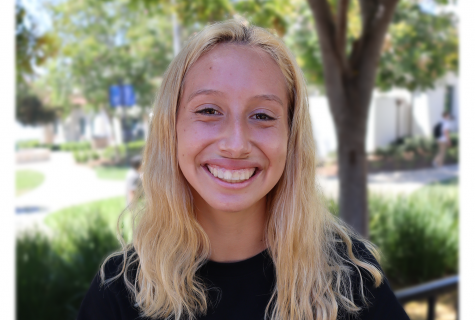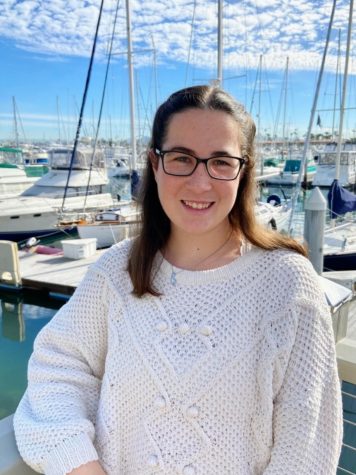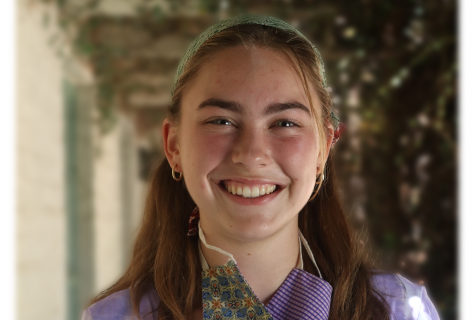Every year, rising sophomores, juniors, and seniors get to sit down with their advisors and plan out their academic opportunities for the following year. The course selection guide serves as a catalog for students who get to pick their classes based on their recommendations; it is like shopping for your education.
When choosing classes for next year, consider what your passions and interests are, not the preconceived notions you have about certain classes or teachers. Additionally, remember that each class is different, so pick what sounds interesting to you.
The course guide is filled with paragraphs about each course but no information from what actual students think about the classes. This article is meant to share experiences from past and present Webbies about different classes. This is not an all-encompassing list but is meant to showcase that each class at Webb is unique; no matter which classes you take, you will find your niche.
Honors Ethics and Modern Global Affairs
“Ethics and Modern Global Affairs is an incredible opportunity to dive into a broad range of topics and disciplines; it felt like we covered a little bit of everything, from philosophy to geography, international relations to public health,” said Lauren Hartle, humanities department faculty. “I don’t remember the last time that I felt so aware of global current events and their contexts.”
“Because there simply wasn’t enough time, I wish that we had a unit on the environment. The class centers around questions of foreign policy and international cooperation (or lack thereof), and this is an important and urgent area for us to focus on. The class can be heavy and sometimes discussions are so abstract that it can be overwhelming,” Ms. Hartle added.
“I would like to bring in more readings and research on how the global community is creatively and actively working to improve lives and intervene in cycles of inequity and deprivation. This class challenged me to articulate what I value and how I can be proactive in acting on my values as a global citizen.”
Honors Ethics and Modern Global Affairs is a fall humanities class for rising juniors and seniors that is great for exposing people to real world problems and discussing how international policy affects these issues. The four main units that were covered include human rights, world health, immigration, and genocide, which are all relevant topics to this day. You will partake in a lot of groupwork and working with others for debates, presentations about foreign policy, and projects.
However, the workload was extremely heavy at times. There were several assignments that took hours of work that were not even for a grade or were worth very few points. Additionally, the course promised a field trip to “relevant sites in the greater Los Angeles area”. Due to COVID-19, the class was never able to go on this field trip which was disappointing but not the teachers’ or curriculum’s fault.
Overall, this is an amazing class to spark discussion about world issues and how to solve them. This class will require you to think critically and discuss with your classmates so you must be comfortable in discussions. I highly recommend taking ethics!
“I loved the overall environment of the class and how we went into the idea of human rights in countries all over the world, not just the US,” said Hunter Lange (‘22), a student who took the class in the fall. “Additionally, it was really interesting to learn different perspectives on what actions a country can take to improve human rights in its own country and in foreign nations. I feel like all the topics we covered were in–depth, considering that the class times have been cut in half. Despite shorter class time, I really recommend this class because it’s allowed me to explore my passions around human rights and understand the ethics behind the choices different countries make in response to human rights violations.”
Advanced Studies Anatomy and Physiology
AdvSt Anatomy and Physiology is an advanced, year-long course in the science department for rising juniors and seniors. This class allows students to study specific things about the human body including histology, homeostasis, how systems interact with each other, and more. This class is amazing for those who want to challenge themselves in science but are not particularly interested in math or formulas. You should take this course if memorizing is an easy skill for you, since you will have to memorize and remember muscles, bones, organs, tissue structure, and more.
However, because the human body is complex, there is a heavy amount of information you will need to know so at times, so, often times you will find yourself learning information outside of class. My advice for this is to go to office hours often. Do not wait until last minute before a summative or project to ask for help because concepts build off each other. Overall, really great class to take!
“I think one of the main reasons I selected Anatomy was because of all the hands-on lab activities I was told the class had,” Iris Chiu (‘21) said. “Obviously with the pandemic, those experiences became very limited, but I still wished they were somehow incorporated into the course this year.”
“Anatomy will test your memorization skills but is overall best for people who are intrigued by the medical field,” said Kennedy Becher (‘21), past course participant. “My favorite assignment was making real life plans for the well-being of people based of their bodies’ statistics.”
Medicinal Chemistry
“There is one class in particular that I whole heartedly believe should be in the Webb academic canon, and it’s Medicinal Chemistry,” Jenna Hawkes (‘21) said. “Mr. Choi has crafted a course that gets even the most pathetic chemistry learners excited about nerdy, science-y stuff. We regularly have deep, meaningful conversations about the stigma around drugs created by the American political atmosphere vs the reality of drug use and abuse based on its chemical properties. This class has completely changed my perspective on well-known drugs like shrooms, LSD, ecstasy, etc. and opened my eyes to the racist, classist, and xenophobic institutions that condemn drug use. 10/10 recommend.”
Medicinal Chemistry is a regular level science class for rising juniors and seniors. Although not offered in the 2021-2022 school year, Medicinal Chemistry is an amazing class to have important discussions about drug use and the chemistry behind drugs and when you have the chance, it would be an amazing class to take. However, students described the course work as “heavy” and “similar to an honors class.” Nevertheless, Medicinal Chemistry is recommended for those who have an interest in chemistry and drug use and who wish to further their knowledge in these subjects while having fun!
“This class is about various drugs, recreational and medicinal,” said Sofia Centeno (‘22), current course student. “We learn about how these drugs work in the brain and unpack various myths and stigmas surrounding it. In a typical class, we discuss the social implications of the drug, it’s use, and how it may be used in the future. I recommend this class to people who don’t want to just memorize information but actually interact with what we learn and apply it to real world problems. My favorite part is the discussions we cover a lot of issues and topics and it’s always really engaging and interesting.”
Advanced Studies Existentialism and the Human Condition
“Existentialism was a difficult course, but I learned a lot,” Sharon Xu (’22) said. “The readings were hard because philosophy is hard to understand, but the workload is manageable, about 2 hours for homework. I liked how we connected our learning to our own lives and reflected on our lives a lot. Overall it’s a really interesting class and will prepare you for your other humanities because no other readings will seem as hard after existentialism.”
AdvSt Existentialism and the Human Condition is hard. The thinkers you will study spent years of their lives trying to convey the purpose, or lack thereof, of existence, how to cope with limitless freedom, how to be an authentic individual, and much more. You might think that you will finish this class in a kind of ‘zen’ mindset, but in reality, you will leave this class more confused and upset than when you started.
The units cover a little bit of the origins of existentialism in Greek philosophy, foundational Existentialists like Kierkegaard, Nietzsche, and Dostoevsky, French existentialists like Sartre and Simone De Beauvoir, and maybe even some feminist and black existentialism. You will read original writing from all these people; true, raw philosophy, that is extraordinarily convoluted and confusing, but so rewarding when you finally understand it. So, though you will forever question the value of the systems we live in, you will also likely leave more confident in yourself and your ability to make choices.
However, it is important to note that your teachers will make or truly break this course. As I mentioned, the course material is really hard, and you will likely get very upset and frustrated with it. So, having a teacher that is able to guide and support you through your struggles is extremely valuable, versus being left alone, unable to resolve the incomprehensibility of Heidegger’s writing.
“The best classes are always the ones where the class is bonded together,” Maya Jaffe (‘20) said. “So, I loved existentialism with Mr. Gerken because the fact that everything we read was so complicated made the class all bond over being confused. We had a really interesting class dynamic of everyone being equally frustrated with the material but also equally passionate about it.”
Honors American Crime and Punishment
“The class studies various aspects and issues of the criminal justice system such as mass incarceration, the war on drugs, immigration, etc,” Sofia said. “The class projects are always really flexible so you can research things you’re really interested in. This class is so insightful and informative. There is a bit a reading you have to do, but it’s always about a captivating topic. Also, it’s a class that’s really relevant so you can extend what you learn outside of the classroom easily. I wish I could take it again.”
Crime and Punishment looks at the American criminal justice system critically and historically and debate key issues like capital punishment and solitary confinement Students describe the class as important and relevant to understanding the fight for justice today. The course load is described as reasonable, consisting mostly of reading and analysis.
“This class is so relevant and talks about the prison industrial complex, systemic racism, and issues with the criminal justice system,” Abbie Oh Arroyo (‘21) said. “Unfortunately, this class just became way too real with the protests against police brutality over the summer. I’m so glad I took this class because it educated me on racial bias in the US and enabled me to understand more about why we see so many BIPOC suffer under America’s racial systems. I cannot emphasize enough how crazy it is to me that some people cannot see issues with the criminal justice system but it’s definitely because they lack the knowledge needed to understand the system under which we live.”












